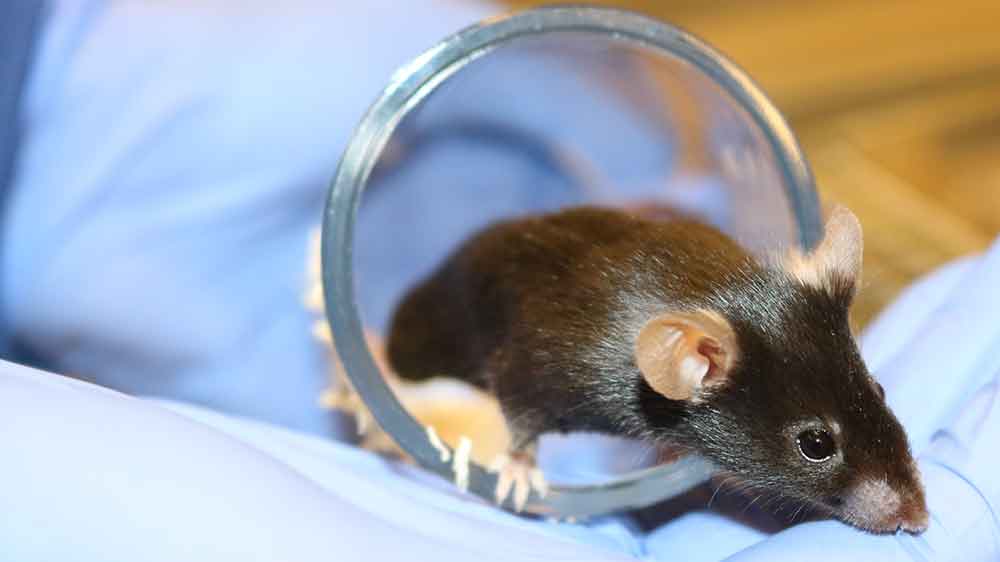Animal Welfare - the 3R principles at UZH

Paulin Jirkof has been working for around a year as 3R Coordinator for UZH. Her job is to help reduce the number of animal experiments conducted at UZH and to improve the welfare of the animals involved.
“If we work with animals, then only with as many as necessary and under the best possible conditions," explains the zoologist. These few words describe what she is aiming to achieve as 3R Coordinator, in which 3R stands for "replace, reduce, refine". Whenever possible, animal experiments should be replaced by alternative methods. If no alternatives are available, the experiments should be optimized to ensure that the animals are exposed to as little distress as possible. In Switzerland, researchers are legally obliged to keep animal experiments to a minimum. In its policy on experimental animal research, UZH undertakes to be stringent in implementing the 3R principles.
For a year now, Paulin Jirkof has been working to ensure that the 3Rs are more firmly anchored in research and teaching at UZH. This involves close cooperation with many people at UZH, including animal husbandry officers, animal keepers, study coordinators and scientists. Paulin Jirkof operates closely with UZH's two animal welfare delegates, Michaela Thallmair and Corina Berset, and statistician Bernadetta Tarigan.
The Department of Animal Welfare provides support to scientists in carrying out their animal experiments. Michaela Thallmair and Corina Berset’s main job is to review the applications for animal experiments before the scientists submit them to the cantonal veterinary office, while statistician Bernadetta Tarigan helps scientists to optimize the design of their experiments and advises them on how to draw relevant and informative statistical conclusions from their work.
The past year already saw several scientists contact Paulin Jirkof to request concrete advice on their projects and suitable 3R methods. Besides her advisory services, Jirkof wants to boost the transfer of knowledge between UZH researchers on existing alternative methods. "I spend a lot of time meeting with researchers," she says. It is important that 3R research is also initiated by the scientists themselves because, ultimately, they are the ones who are experts in their fields.
In order to anchor and promote the 3R principles, they must be integrated into education. The Institute of Laboratory Animal Science at UZH organizes a substantial part of Switzerland’s education program for researchers who perform or lead animal experiments. Last year, Paulin Jirkof mainly offered courses for young researchers from medicine, veterinary medicine and the natural sciences. In addition, she taught the 3R principles in courses on research ethics. But, in the future, she wants to incorporate the 3Rs more firmly into teaching – at both Bachelor and Master level. "Students should be informed about the 3R principles as early as possible," she says.
In hiring Paulin Jirkof, UZH is the first university in Switzerland to employ someone exclusively to promote the 3R principles in research and teaching. In the meantime, eleven Swiss universities now have 3R officers working for them.